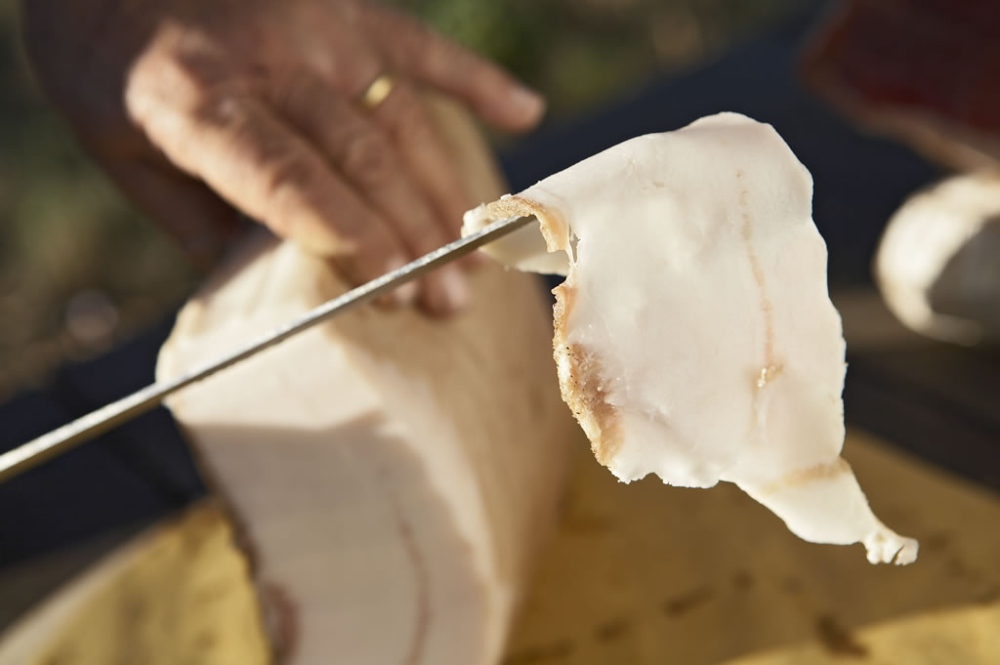Lardo di Colonnata PGI


From poor dish to sought-after delicacy
Lardo di Colonnata takes its name from the place where it originated, Colonnata, a small village perched among marble quarries in the vicinity of Carrara. The cured meat originated to support the work of quarrymen, giving the calories needed to help them during their labors, ascents and descents.
Characteristics
For the production of lard, the back fat of selected pigs is used, salted and matured inside special marble tanks.
The product is roughly rectangular in shape, given by the curing in the basins, and is no less than 3 centimeters thick. The appearance is marked by the presence of the rind at the bottom and salt covering the top, made dark by the presence of the herbs and spices used in the processing stage.
It appears moist, with a soft, even texture, but there may be a streak of lean inside.
Its color is white, slightly pinkish or vaguely burnished.
For the production of lard, the back fat of selected pigs is used, salted and matured inside special marble tanks.
The product is roughly rectangular in shape, given by the curing in the basins, and is no less than 3 centimeters thick. The appearance is marked by the presence of the rind at the bottom and salt covering the top, made dark by the presence of the herbs and spices used in the processing stage.
It appears moist, with a soft, even texture, but there may be a streak of lean inside.
Its color is white, slightly pinkish or vaguely burnished.
Gastronomy
The smell is fragrant and rich in aroma, and the taste is delicate and fresh, almost sweet. It is best enjoyed au naturel, cut into thin slices, paired with toasted bread and, if desired, with structured wines.
Tips for proper storage: after cutting, it is a good habit to fold the leftover part of the rind over the body of the lard and wrap it in a damp cloth. It should be stored in a cool place or on the bottom shelf of the refrigerator.
The smell is fragrant and rich in aroma, and the taste is delicate and fresh, almost sweet. It is best enjoyed au naturel, cut into thin slices, paired with toasted bread and, if desired, with structured wines.
Tips for proper storage: after cutting, it is a good habit to fold the leftover part of the rind over the body of the lard and wrap it in a damp cloth. It should be stored in a cool place or on the bottom shelf of the refrigerator.



